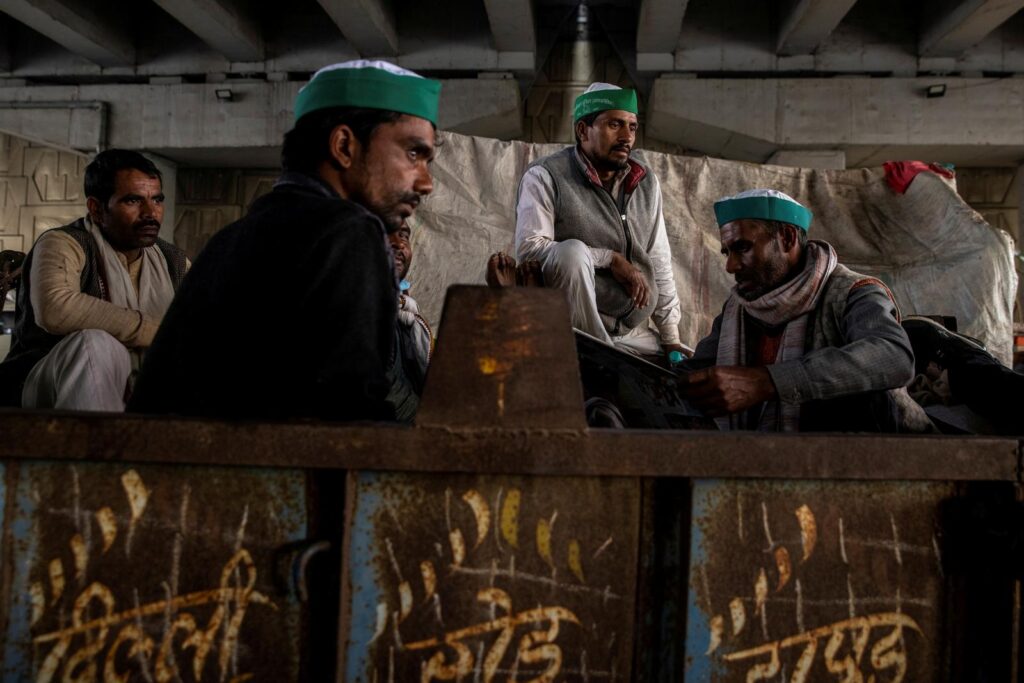Govt. Mulls Changing New Farm Laws After Mass Protests
Dec 5, 2020 | Pratirodh Bureau
FILE PHOTO: Farmers rest inside a tractor trolley at the site of a protest against farm bills at the Delhi-UP border in Ghaziabad
The Union government is considering rolling back some parts of its agricultural reforms after they triggered the biggest protests by farmers in years, officials said on Friday.
Tens of thousands of farmers were out on the streets around Delhi again on Friday, rallying against three laws that the government says are meant to overhaul antiquated procurement procedures and give growers more options to sell their produce.
Farmers fear the legislation, passed in September, will eventually dismantle India’s regulated markets and stop the government from buying wheat and rice at guaranteed prices, leaving them at the mercy of private buyers.
“The government is open to look into various amendments,” a government official told Reuters, declining to be named, ahead of a meeting between farmers and ministers scheduled for Saturday.
“The government is open to the idea of imposing taxes on the new wholesale markets to keep a level playing field,” he said.
In case of a dispute between sellers and buyers, the government could also let farmers appeal to a higher court than is currently allowed under the new legislation, he added.
Two other officials said the government was considering making the same concessions, but the government faspokesman was not immediately available for comment.
There was no immediate response from protesters to the official’s proposals but Kavitha Kuruganti, a farmers’ leader, told Reuters so far the government had not agreed to farmers’ demands.
Farmer leaders have demanded the government repeal the laws and retain mandatory government purchases, and said that buyers at private markets should pay the same tax as at state-run markets.
Under the Farmers’ Produce Trade and Commerce (Promotion and Facilitation) Act, one of the new laws, private players are allowed to set up wholesale markets where transactions will not attract any kind of tax.
The protests, led by influential farming groups from the grain-producing states of Haryana and Punjab, pose a crucial test for Modi’s ability to reform India’s vast agriculture sector, which makes up nearly 15% of the country’s $2.9 trillion economy and employs around half of its 1.3 billion people.
